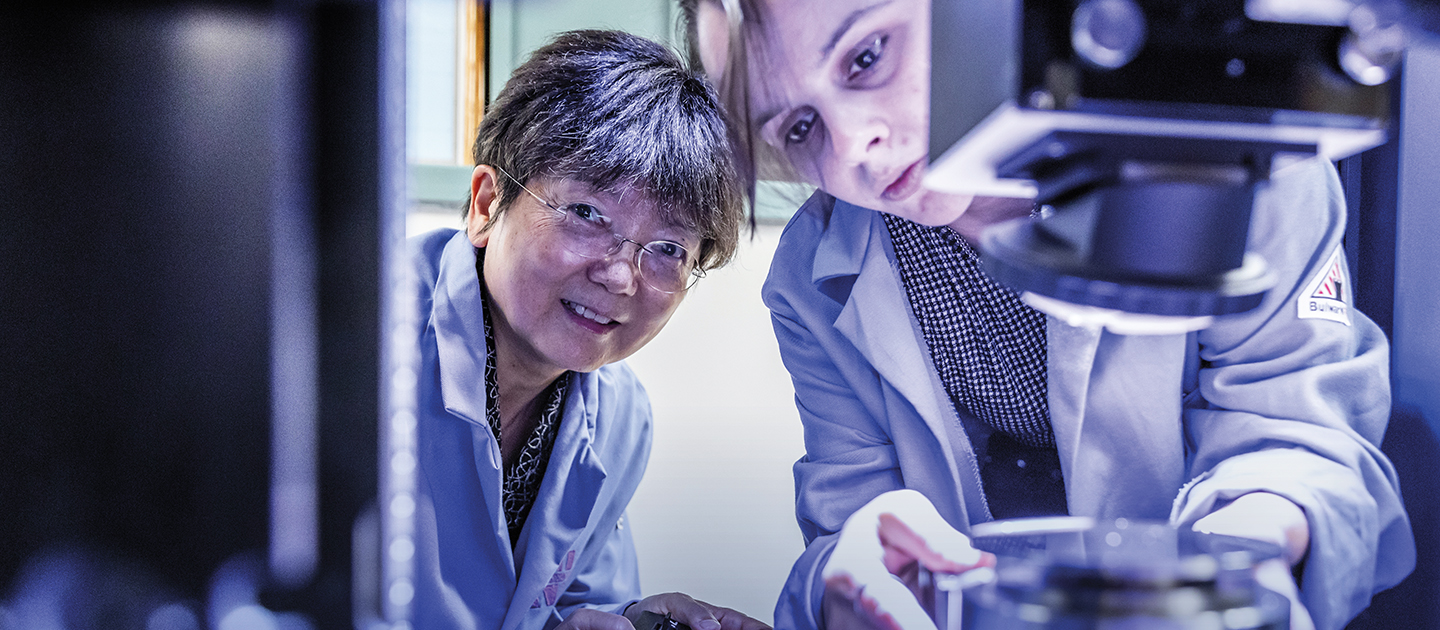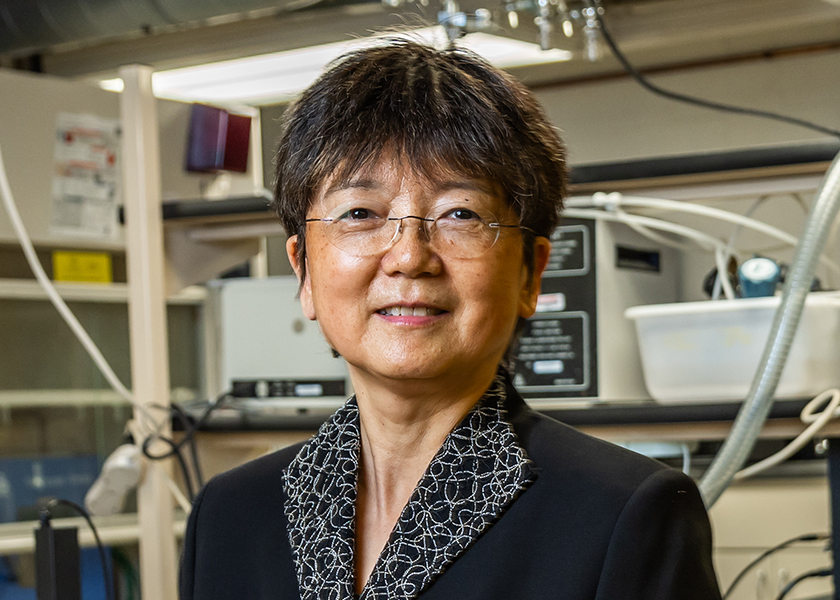Smoothing the Future
Working at the forefront of tribology, Q. Jane Wang and her team continue to advance next-generation technology.

The roots of tribology—the study of friction and lubrication between surfaces in contact and relative motion—go hand in hand with the industrial revolution and engineering development.
But as new technologies like electric vehicles (EVs) raise both novel and longstanding questions, Northwestern Engineering Professor Q. Jane Wang is working at the forefront of the discipline's future. Her latest tool? Artificial intelligence (AI).
"Tribology is a challenging thing," she says. "There are lots of places where the basic theories are missing. If we can use AI to help build fundamental equations and develop fundamental theories, that would be helpful, because tribology is dealing with complicated things."
Wang, Joseph Cummings Professor in Mechanical Engineering, has long been a pioneer in the field. In February 2023, she was elected to the National Academy of Engineering (NAE) for "contributions to computational tribology in industrial applications." Her work has led to better-performing and more reliable engines, batteries, and lubricants used across industries.
Now, Wang and her lab associates are working to contribute further by finding the best avenues for putting AI to use. As executive director of Northwestern's Center for Surface Engineering and Tribology (CSET)—which addresses critical problems related to surface failure that affect key components in advanced engines, manufacturing equipment, bearings, batteries, and biomechanical systems—Wang is working on developing a framework to unify numerous segments of tribology.
"I think AI can help us go deeper into the science and build more connected, robust models," she says. "You can see many things happening at the same points, but it is difficult to know exactly what is going on all together. We hope AI helps us to identify what is happening, the parameters needed to build the correct setup for phenomenon regeneration, and what will happen next. That is very important to the prevention of system failures."
Solving Problems Virtually
Wang's forward-thinking mindset serves her well as she investigates tribology related to EVs, which have internal systems that differ greatly from their gasoline-powered counterparts. EVs differ from traditional internal combustion vehicles in their wear mechanisms, lubrication needs, battery storage, and even cooling issues. For example, the bearings in internal combustion engines, which use regular lubrication, have no electrical current running through them. That is not the case with EVs, a difference that could result in a build-up of electrical voltage and cause problems.
"How to prevent, predict, model, and design parts to avoid those issues is one of the biggest challenges we face right now," Wang says. "We need to work on lubricants that are safe under an electrical field and will not degrade the surfaces they are protecting."
To rise to the challenge, Wang builds on her prior accomplishments, one of which is virtual tribology. Consisting of groups of model-based simulations, virtual tribology is a concept she proposed at the beginning of the century and developed in a National Science Foundation-funded Integrative Graduate Education and Research Traineeship Program at Northwestern's CSET, led by Wang and the late professor Leon Keer. That virtual system then used advanced computer modeling to simulate the interfacial interactions among critical tribological elements.

A Platform To Perform
Wang and her colleagues at CSET still conduct research into problems that touch many aspects of daily life. "We focus on developing computer codes for industrial applications and work with industries on individual research projects," Wang says. "So, no matter what we do, we support the application of tribology to industries."
Wang is also following in the footsteps of the late Herbert Cheng, one of the faculty members who initiated CSET and Wang's PhD adviser at Northwestern when she earned her doctorate in 1993. Reflecting on her election to NAE and the support she's received during her career, Wang says she considers the influence of Cheng and Keer, her professors, colleagues, associates, students, and collaborators, and the University as a whole as key to her success.
"I do not regard this as a personal honor. It is a recognition of years of work with a lot of people," Wang says. "It is truly due to Northwestern that I was offered the platform to perform and opportunities to work with so many nice and talented people to make great progress in research.
Photography by Matthew Allen
